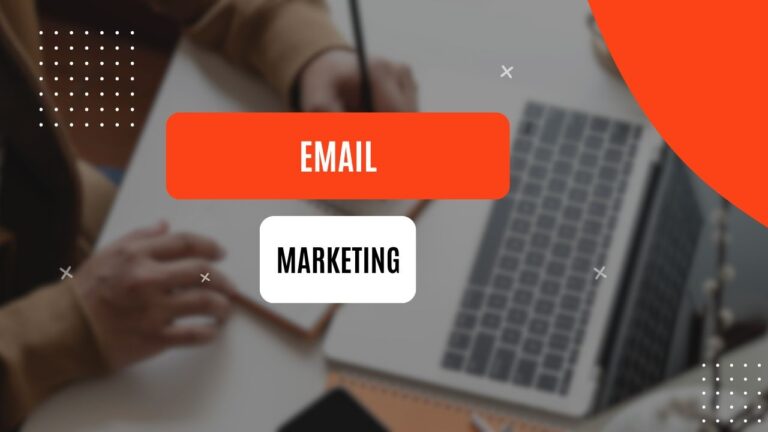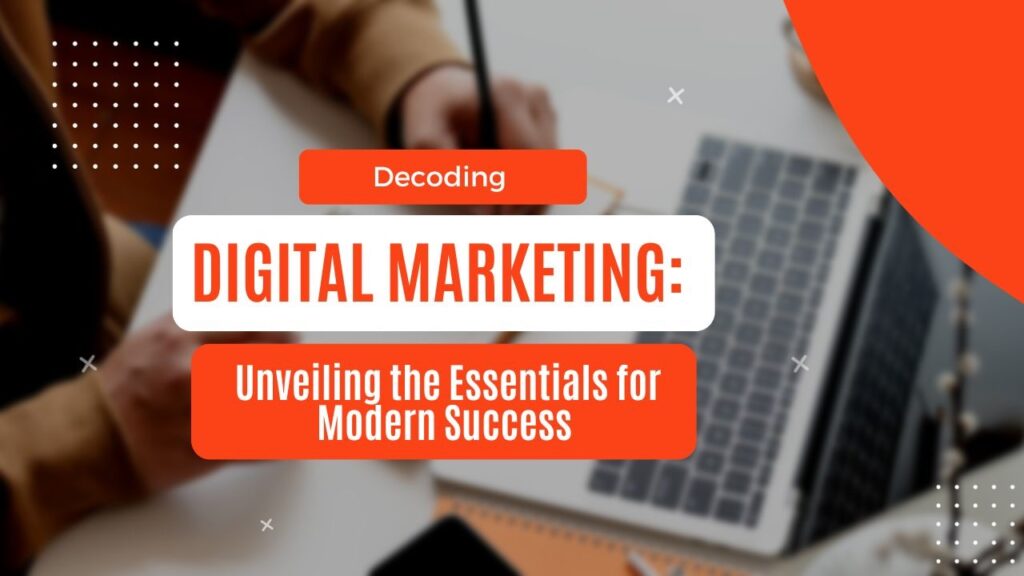In the dynamic realm of digital marketing, where trends shift like dunes, digital communication and email marketing remain a steadfast cornerstone for businesses seeking direct and personalized engagement with their audience. While the allure of flashy social media campaigns and viral video trends is undeniable, email marketing offers a level of intimacy and directness that few other channels can match. With its ability to deliver targeted messages, nurture leads, and foster customer loyalty, email marketing continues to be a vital component of comprehensive marketing strategies, proving its enduring value in an ever-evolving digital landscape.
Unlike the fleeting nature of a social media post, emails reside in the intimate space of a user’s inbox, offering a direct line of communication to nurture relationships and build brand affinity. Whether it’s a welcome message to a new subscriber, a personalized promotion based on past purchases, or a newsletter brimming with valuable insights, email allows businesses to foster a sense of community and loyalty that transcends fleeting trends.
In this comprehensive guide, we’ll delve into the intricacies of email marketing, exploring its effectiveness, strategies, and evolving trends in the digital age. From crafting compelling content that resonates with your audience to navigating the complexities of deliverability and analytics, this guide will equip you with the knowledge and tools to harness the power of email marketing and elevate your digital marketing game.
Understanding Email Marketing:
Email marketing involves the strategic dissemination of targeted messages to a group of individuals via email. This multifaceted strategy aims to build relationships, promote products or services, and drive specific actions among recipients. By leveraging segmentation and personalization, marketers can tailor content according to the recipient’s preferences, behaviours, and demographics, thereby enhancing engagement and driving better results.
Types of Email Marketing Campaigns:
Email marketing is a versatile and powerful tool that offers businesses a wide range of campaign types to engage with their audience, drive conversions, and build relationships. Understanding the different types of email marketing campaigns and their purposes is essential for crafting effective strategies that resonate with recipients and achieve desired outcomes. Let’s explore some of the most common types of email marketing campaigns:
Newsletters:
Newsletters are a fundamental component of email marketing campaigns, providing subscribers with regular updates, industry news, and valuable insights. These emails aim to keep recipients informed and engaged, positioning the sender as a trusted source of information in their respective fields. Newsletters often include curated content, educational resources, company updates, and upcoming events, providing subscribers with added value and fostering a sense of connection with the brand.
Promotional Offers:
Promotional offer emails are designed to capture the attention of recipients and drive them to take action, such as making a purchase or visiting a website. These emails typically highlight special promotions, discounts, sales, or exclusive deals, enticing recipients to take advantage of limited-time offers. By offering irresistible deals and incentives, businesses can drive sales, increase revenue, and incentivize customer loyalty.
Product Announcements:
Product announcement emails are used to inform subscribers about new products, features, or developments within a business. These emails generate excitement and anticipation among recipients, showcasing the latest offerings and encouraging them to explore and engage with the brand. Product announcement emails can include product launches, updates, upgrades, or enhancements, providing subscribers with valuable information and opportunities to discover and purchase new products.
Welcome Emails:
Welcome emails are sent to new subscribers immediately after they sign up to receive emails from a business. These emails serve as the first point of contact with the brand and are designed to introduce subscribers to the company, its products or services, and its value proposition. Welcome emails often include a warm greeting, a brief introduction to the brand, and a call to action encouraging recipients to engage further, such as completing their profile, exploring the website, or making a purchase.
Abandoned Cart Emails:
Abandoned cart emails are triggered when a customer adds items to their online shopping cart but fails to complete the checkout process. These emails serve as a reminder to the customer about the items they left behind and encourage them to return to complete their purchase. Abandoned cart emails often include a list of the items in the cart, a reminder of the benefits of completing the purchase, and a call to action to return to the website and complete the transaction.
Customer Feedback Surveys:
Customer feedback surveys are used to gather insights and feedback from customers about their experiences with a product, service, or brand. These emails typically include a brief questionnaire or survey that allows customers to provide feedback on various aspects of their experience, such as product satisfaction, customer service, or website usability. Customer feedback surveys provide valuable insights for businesses to improve their offerings, address customer concerns, and enhance the overall customer experience.
Key Strategies for Success:
Successful email marketing campaigns are built on a foundation of effective strategies and best practices. Segmentation and personalization are essential components, enabling marketers to deliver targeted messages that speak directly to the recipient’s interests and preferences. Additionally, automation features streamline the process, allowing for personalized content delivery at scale and triggering responses based on user actions. By analyzing key metrics such as open rates, click-through rates, and conversion rates, marketers can evaluate campaign performance and refine strategies for optimal impact.
Harnessing the Power of Automation:
Automation plays a pivotal role in modern email marketing, enabling businesses to streamline processes and deliver personalized content efficiently. By implementing automated workflows, marketers can nurture leads, onboard new customers, and re-engage inactive subscribers with minimal manual intervention. Advanced automation features allow for dynamic content customization, A/B testing, and behaviour-based triggers, ensuring that messages are delivered at the right time and in the right context.
Building and Maintaining Customer Relationships:
Beyond promotional content, email marketing serves as a valuable tool for building and maintaining customer relationships. By delivering educational content, updates, and exclusive offers, businesses can keep customers informed and engaged over time. Consistent and relevant communication fosters trust and loyalty, ultimately driving repeat purchases and advocacy for the brand.
Embracing Innovation:
As technology continues to evolve, email marketing adapts with the integration of advanced analytics, artificial intelligence, and interactive elements. Advanced analytics provide deeper insights into subscriber behavior and preferences, allowing marketers to refine targeting and content strategies accordingly. Artificial intelligence enables predictive analytics and dynamic content optimization, further enhancing the relevance and effectiveness of email campaigns. Interactive elements such as polls, quizzes, and surveys encourage engagement and provide valuable feedback from recipients.
Conclusion:
In conclusion, email marketing remains a powerful and versatile tool for businesses seeking direct communication with their audience. By leveraging segmentation, personalization, and automation, marketers can deliver targeted messages that resonate with recipients and drive desired actions. As technology continues to evolve, email marketing will continue to adapt and innovate, ensuring its continued effectiveness as a vital component of comprehensive digital marketing strategies. By embracing best practices, harnessing the power of automation, and embracing innovation, businesses can maximize engagement and ROI through email marketing in the digital age.





